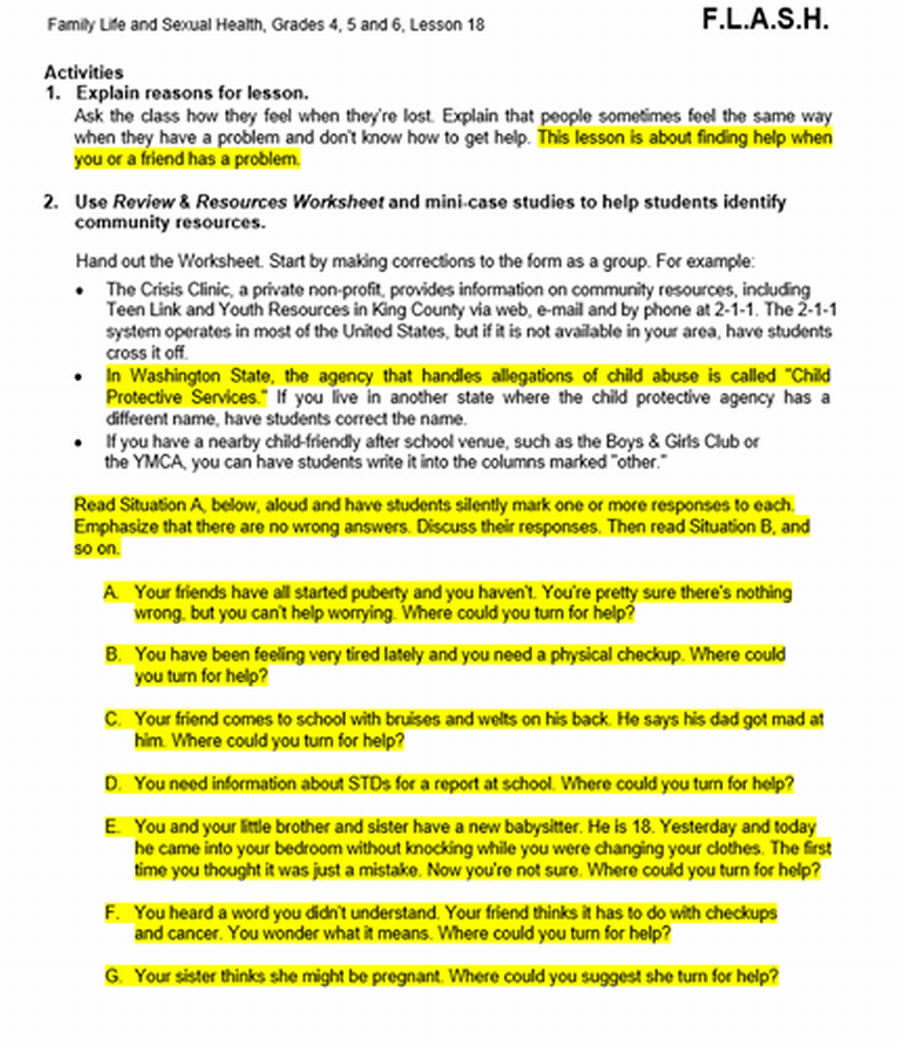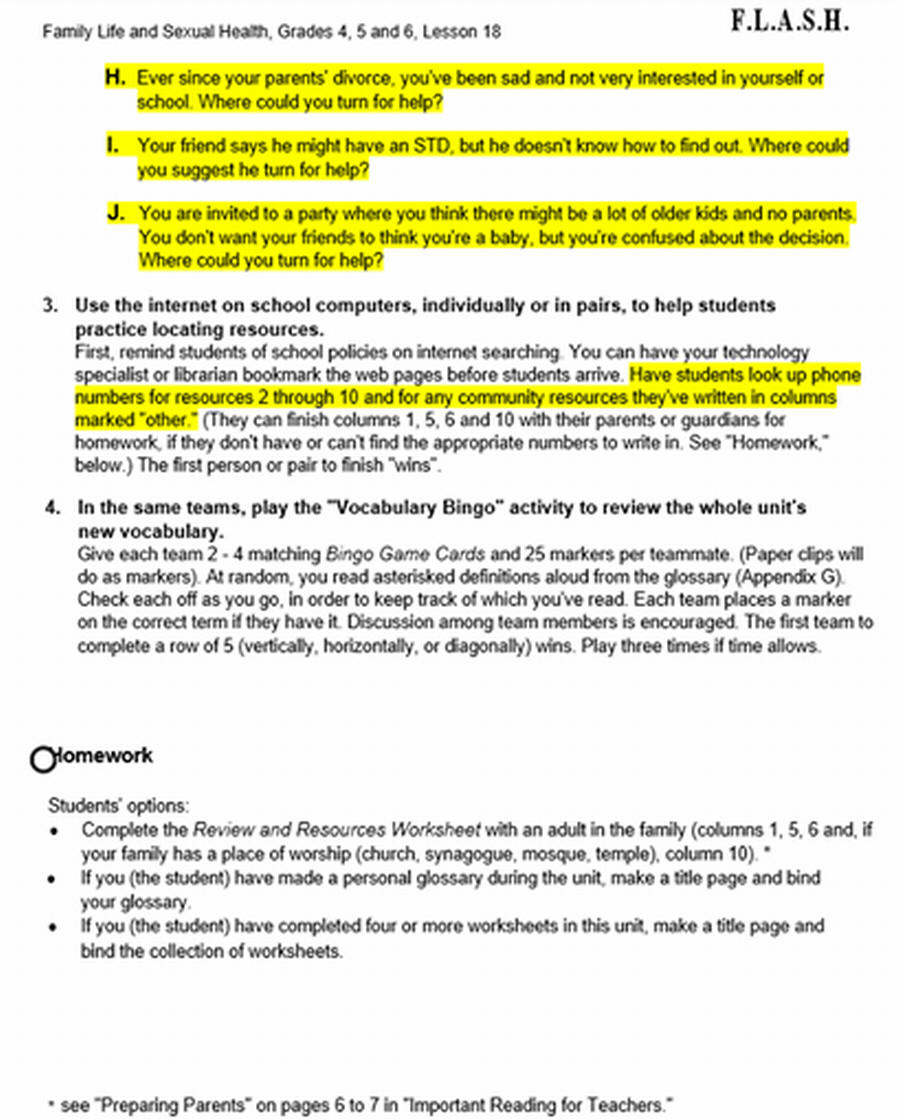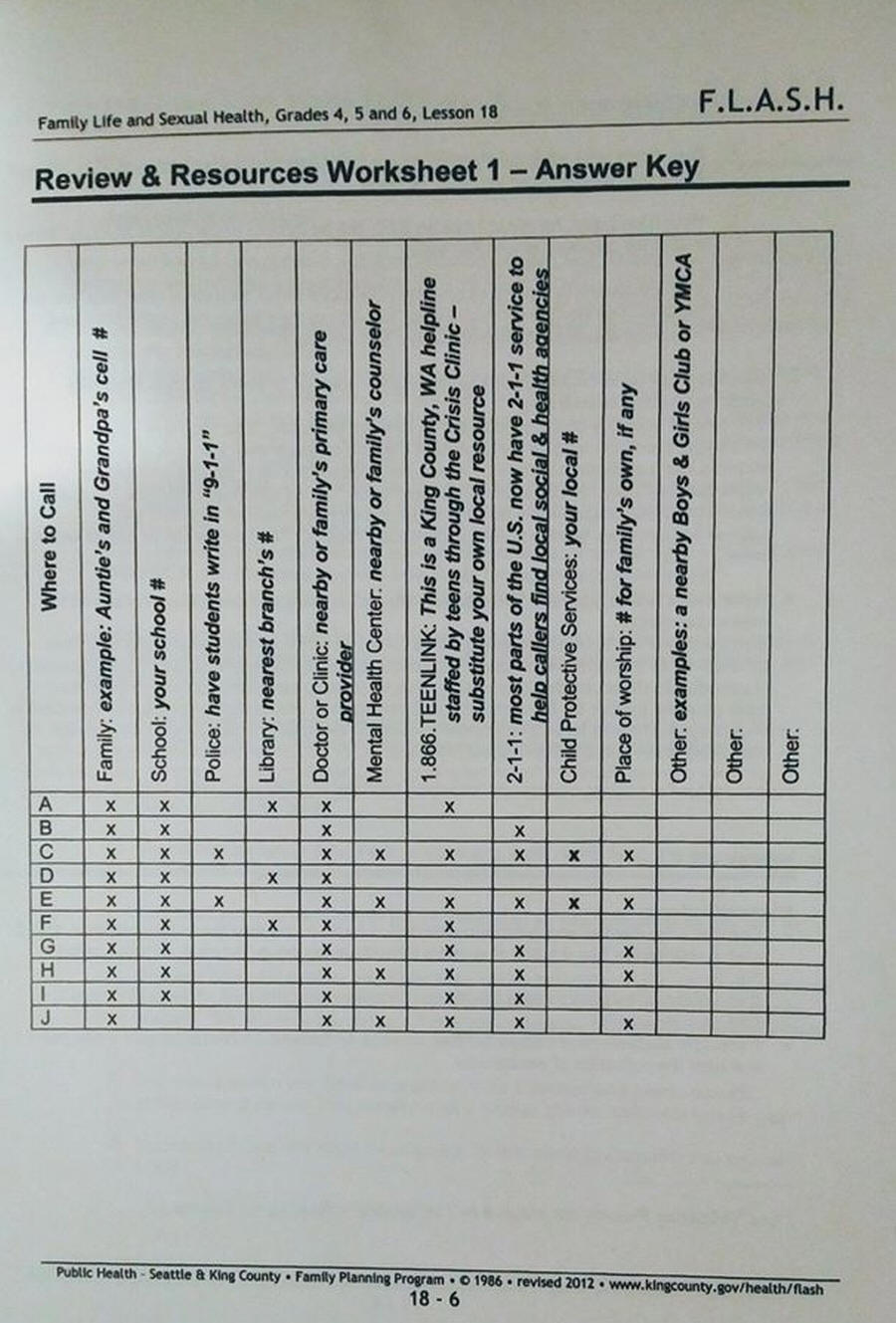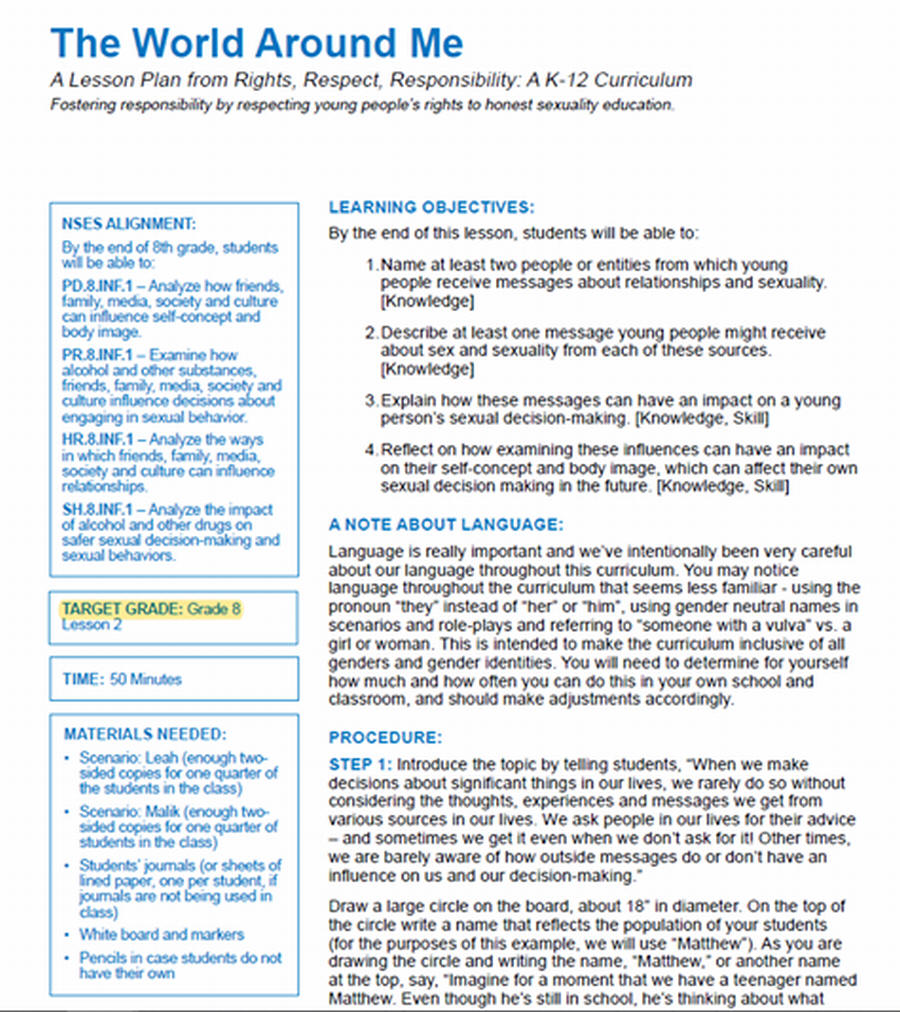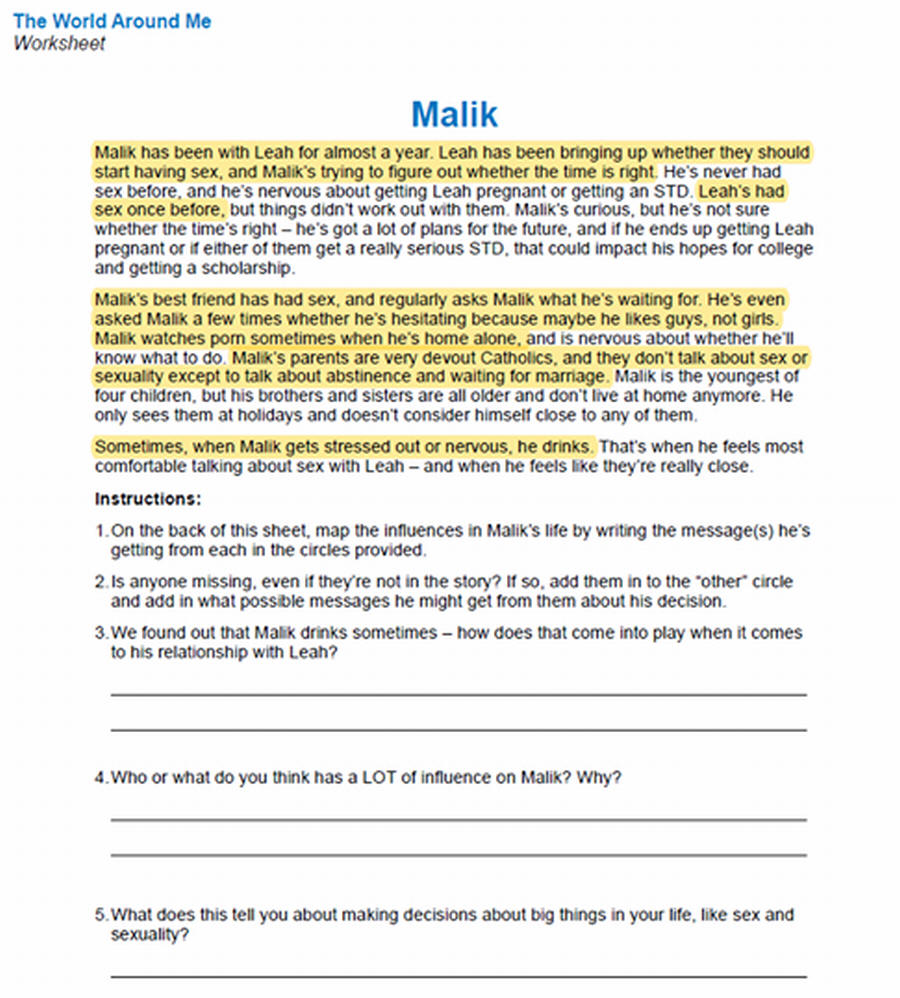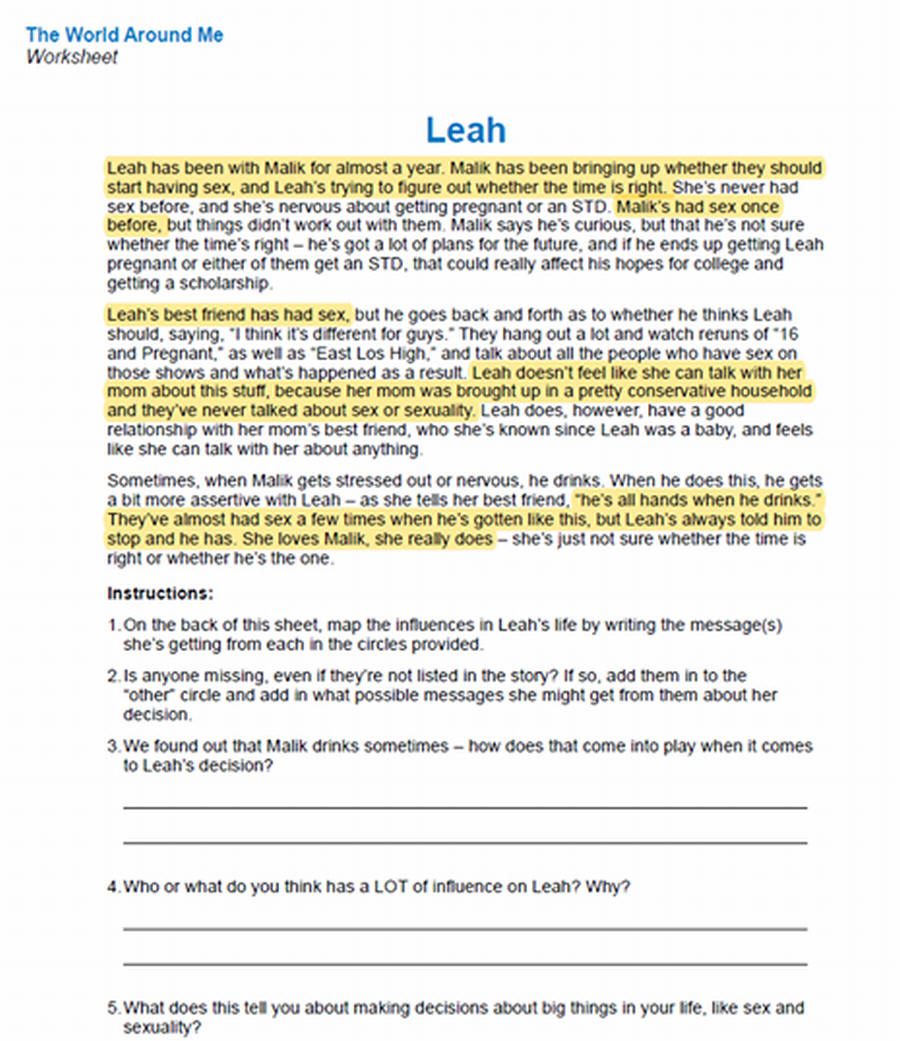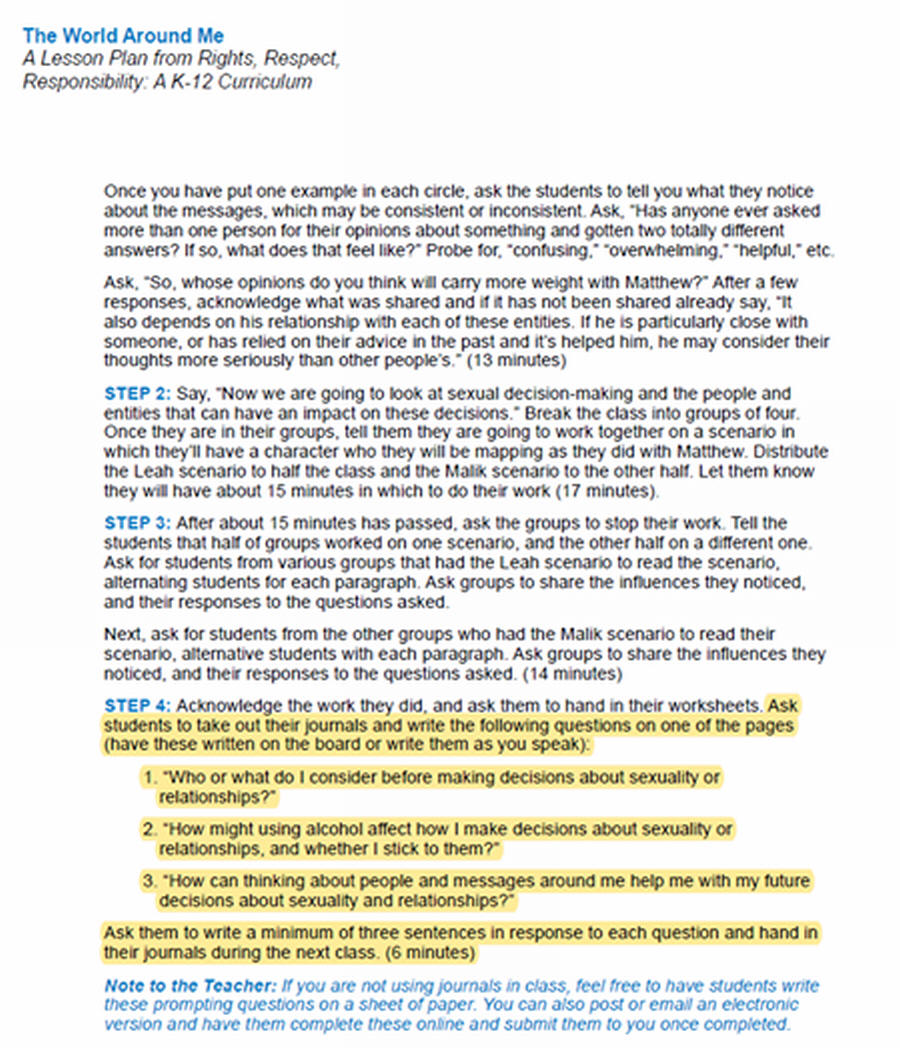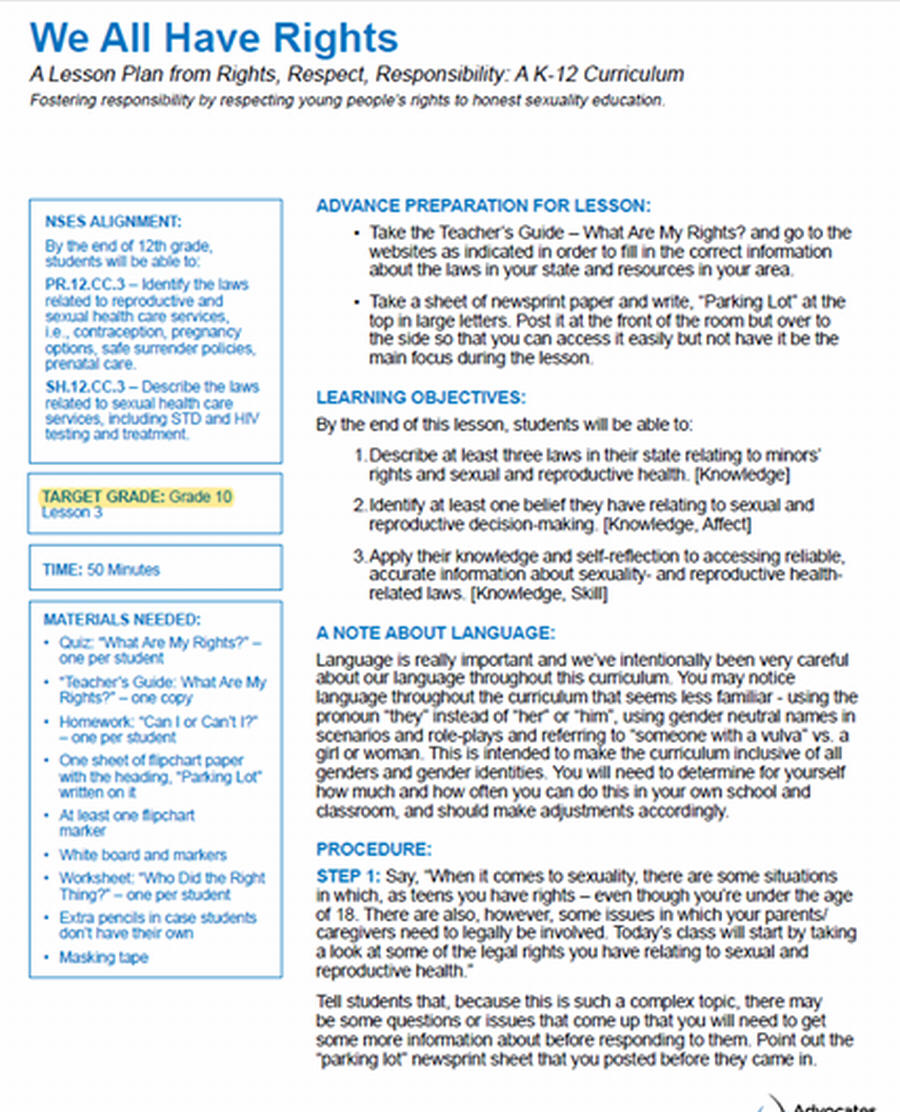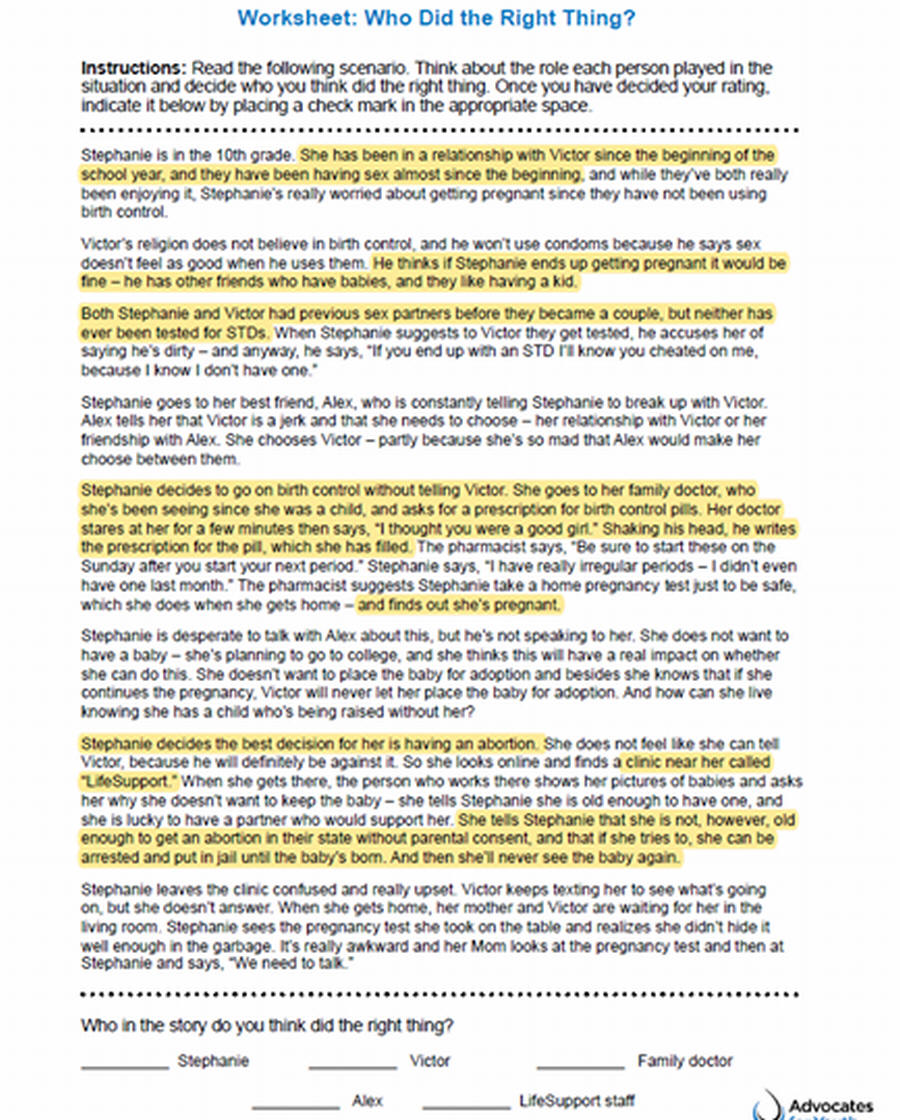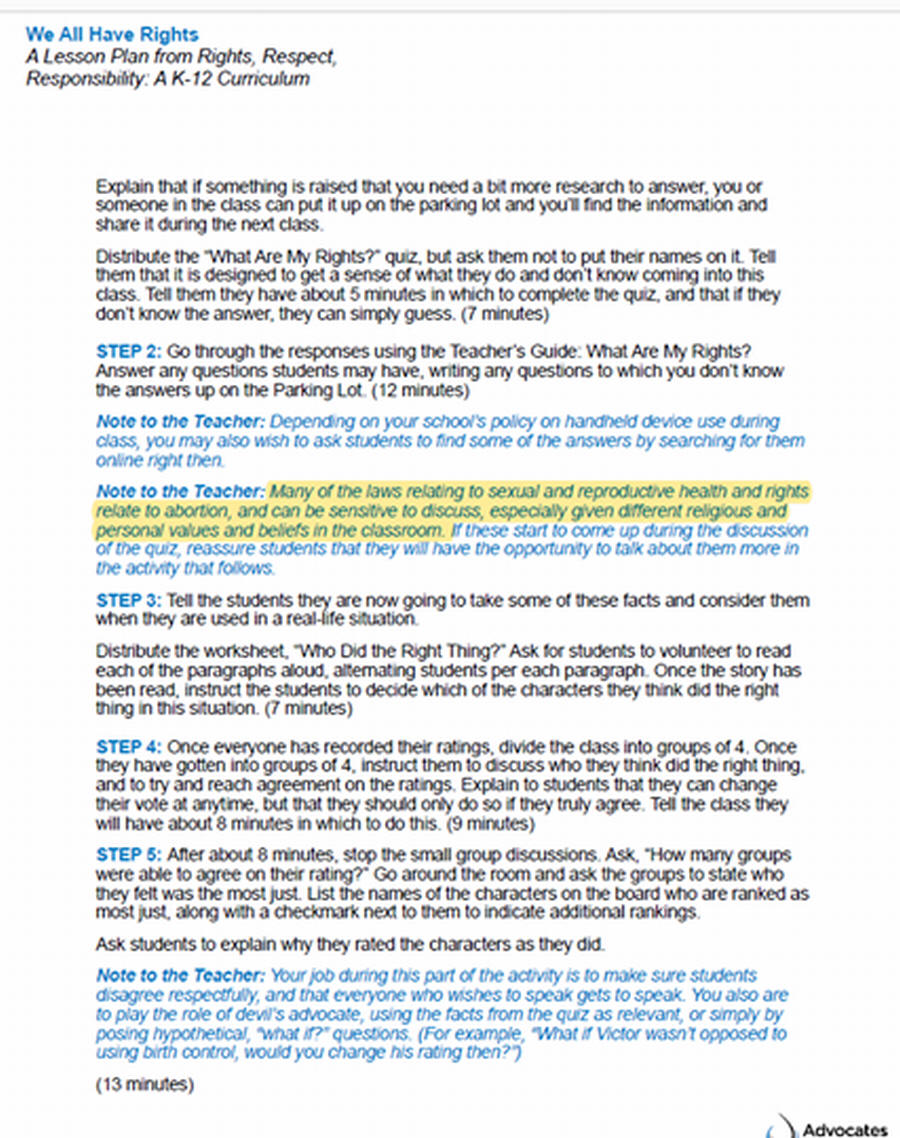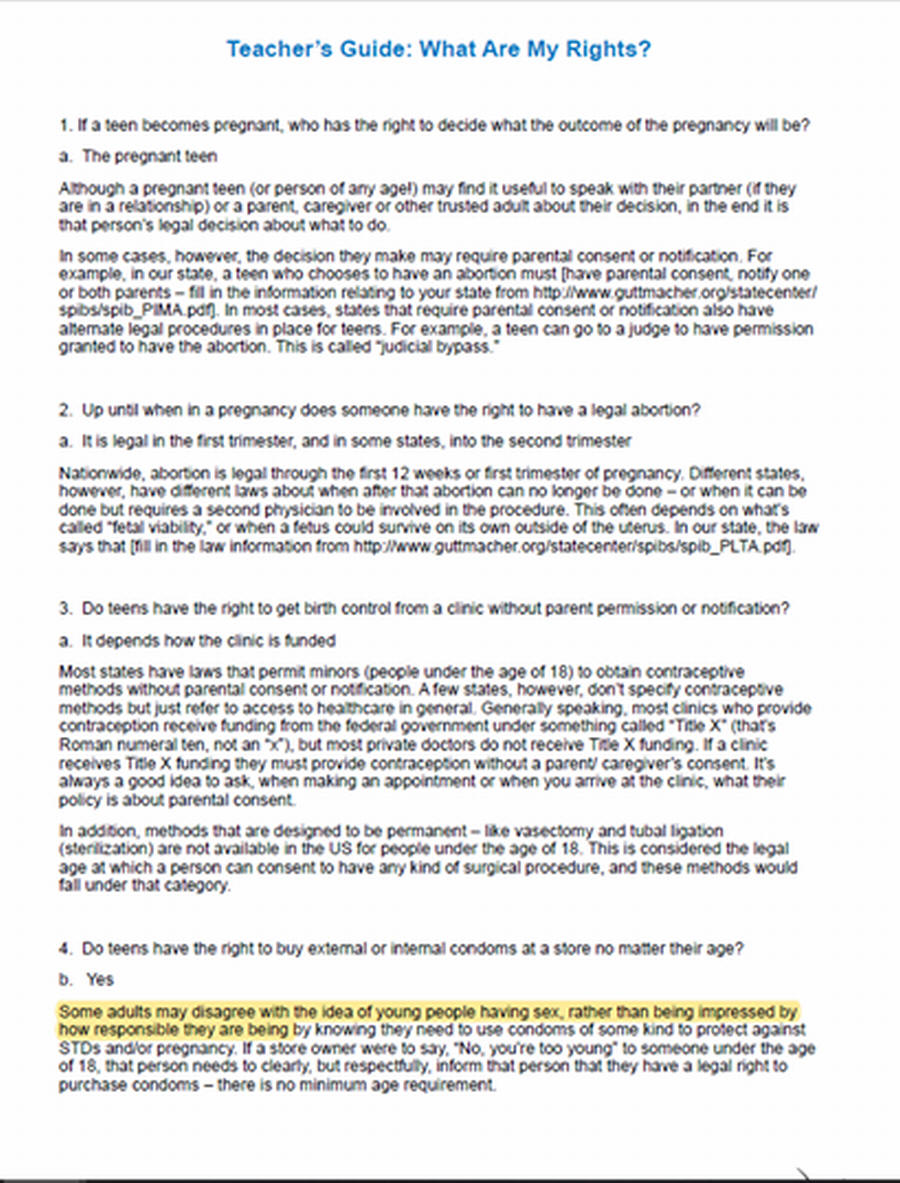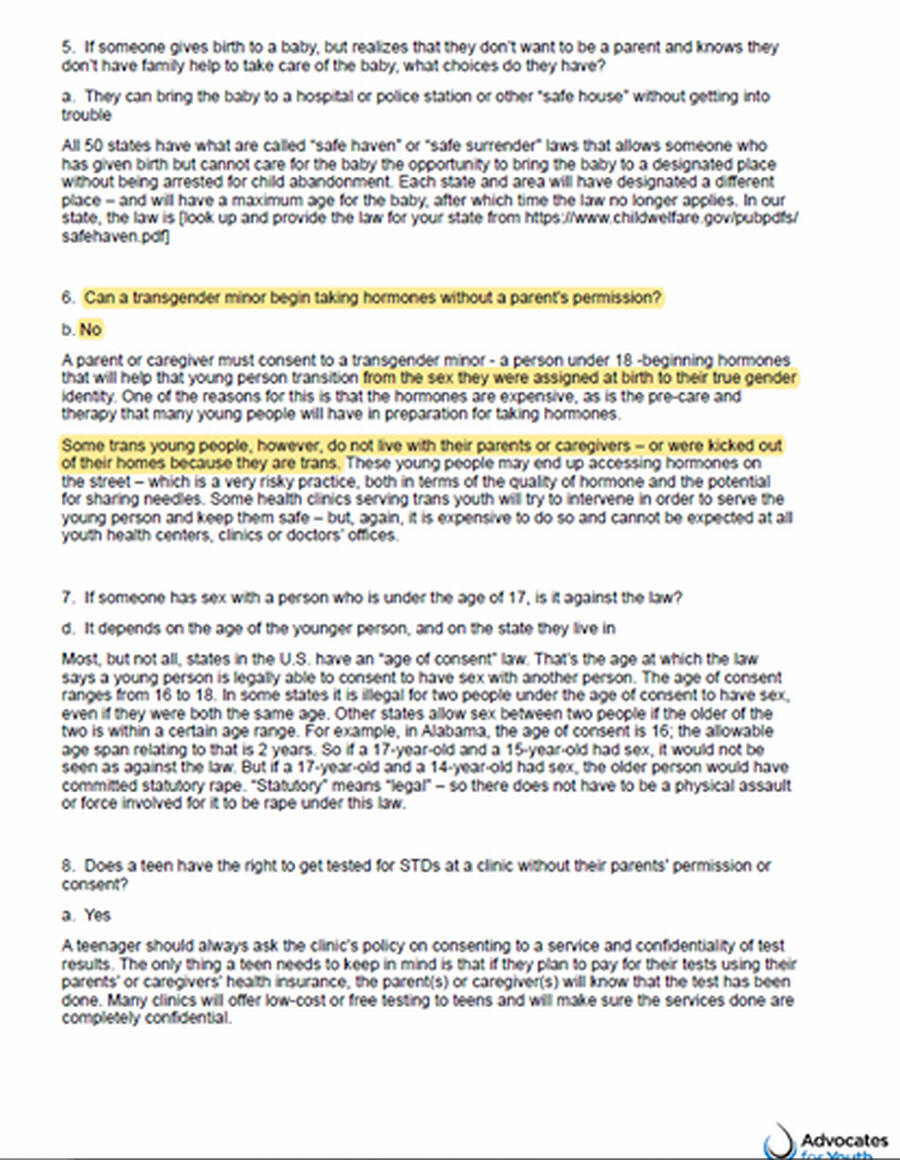|
|
| Rights, Respect,
Responsibility (3 R's Curriculum) On OSPI's Reviewed Materials List (In reality an approved list) From SW Washington Parents' Rights In Education: "Sexting is here to stay folks." "The real issue is consent." "If you think about it like that, then sexting is just another aspect of normal sexual behavior." That's what The 3 Rs curriculum wants to tell your 15 year-old, using a video the IT will have to unblock so it can be shown. Then they'll discuss scenarios that make sexting seem like the norm. For homework kids go out and share their newfound knowledge with at least four friends. At the end of the lesson, in yet another instance of educators trying to insert themselves between parents and their children, the teacher is instructed to say, "This isn't easy to talk about and you may still have questions. Remember you can always talk with me..." |

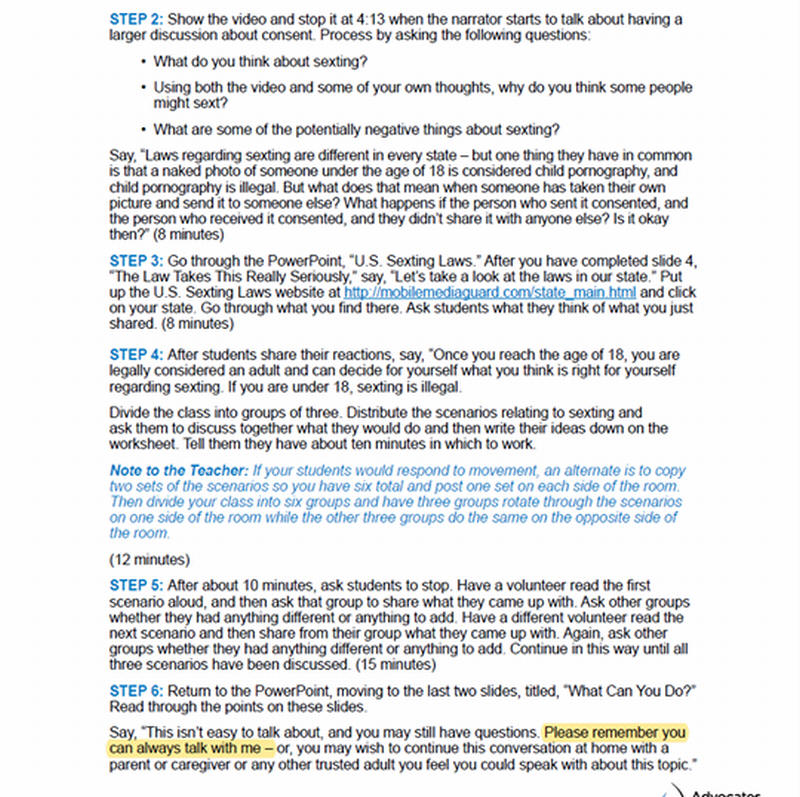
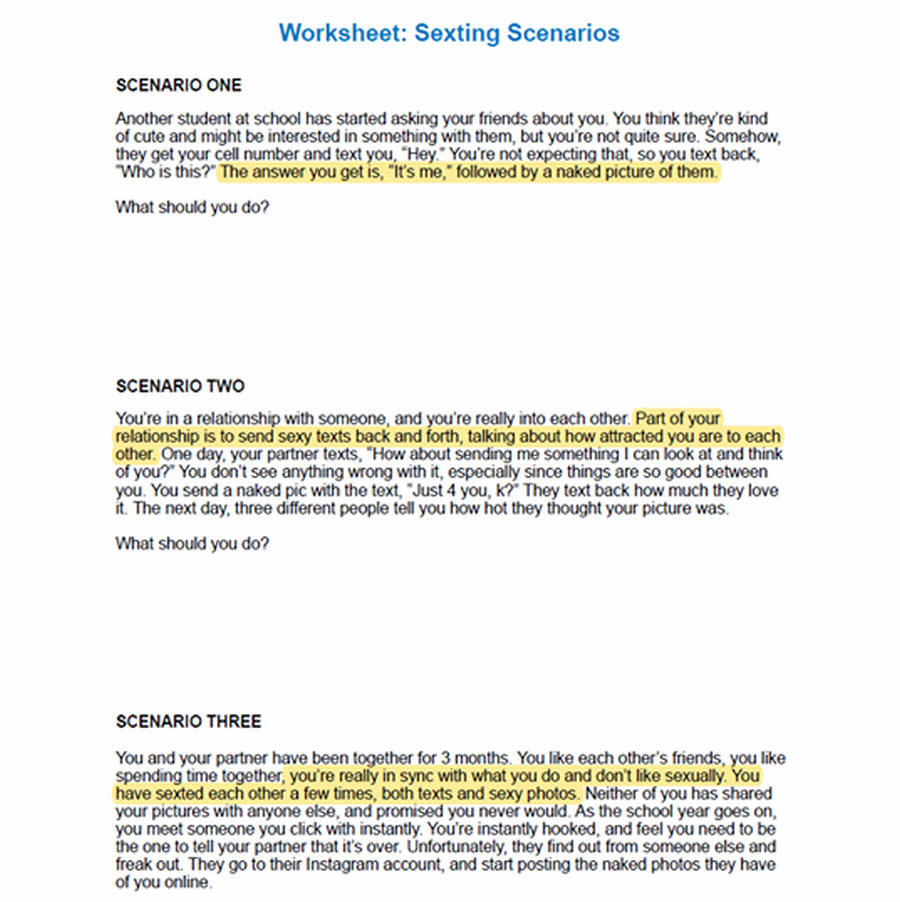
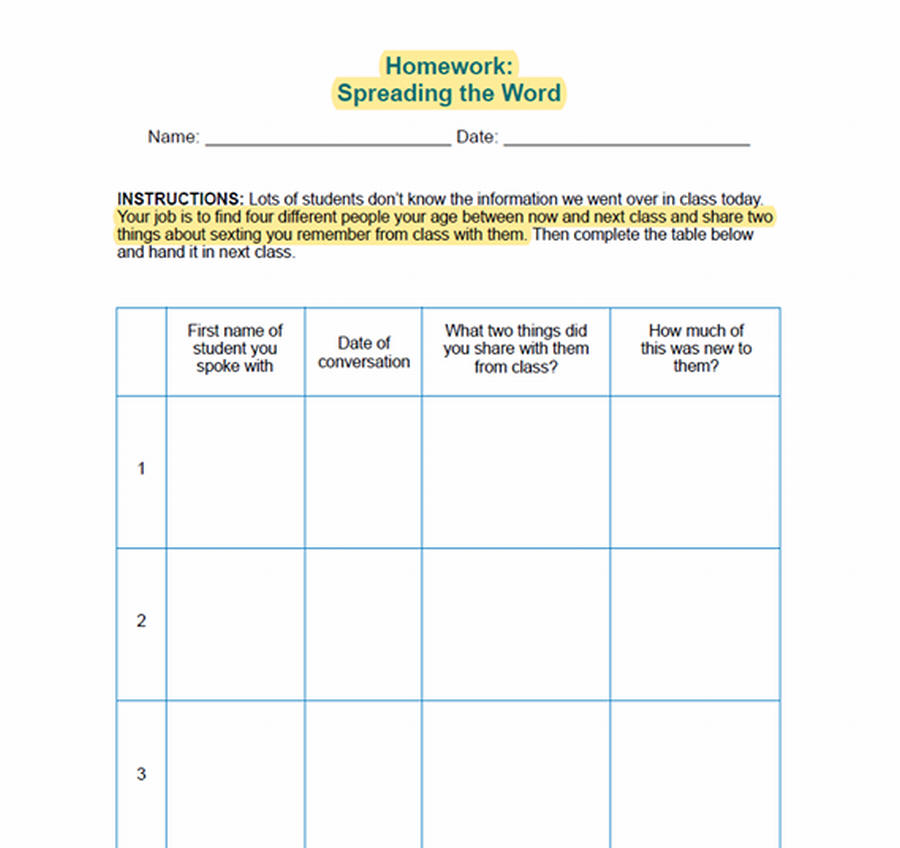
|
Following from Jennifer Heine-Withee, Parents' Rights in Education: Examples below is taken from the 3Rs CSE curriculum, Grade 7, lesson 5, "Protecting Your Health: Understanding and Preventing STDs", approved by the Office of the Superintendent of Public Instruction for Washington state. One of the requirements for a CSE curriculum is that it is age appropriate and medically accurate. There are several ways that this lesson does not meet this standard. The lesson instructs kids (12 yrs. old) to use a condom for anal sex in order to be at low risk for contracting HIV/STDs. There is NO FDA approved condom for anal sex and only one FDA approved female condom. There is no information about the other risks associated with anal sex such as anal tears, incontinence, or an explanation as to why it is so easy to contract HIV or an STD from anal sex. The curriculum suggests that bathing together and mutual masturbation are not sexual activities. Yet it then suggests that these behaviors are "important because they can help people learn about their bodies and build connection between people..." These are sexual activities can very easily lead to sex and are not appropriate for 12 yr. old children to be engaging in. |

| Below from Informed Parents of Washington: The FLASH curriculum helps kids in 4-6th grades create a resource page--a list of organizations they can go to for help, making sure they have the numbers for the school, doctor or clinic, a helpline, and even CPS. Then they are read scenarios and ask kids to check all the place they could call if they needed help with that situation.. The scenarios include feeling tired and needing a check-up, a friend who might have an STD, a sister who might be pregnant, and a new babysitter who has twice walked in while the child was changing clothes. These are kids as young as 9! The correct answer to every scenario is, YOUR PARENTS. Tell OSPI and your legislators to stop trying to interfere with the parent/child relationship. |

